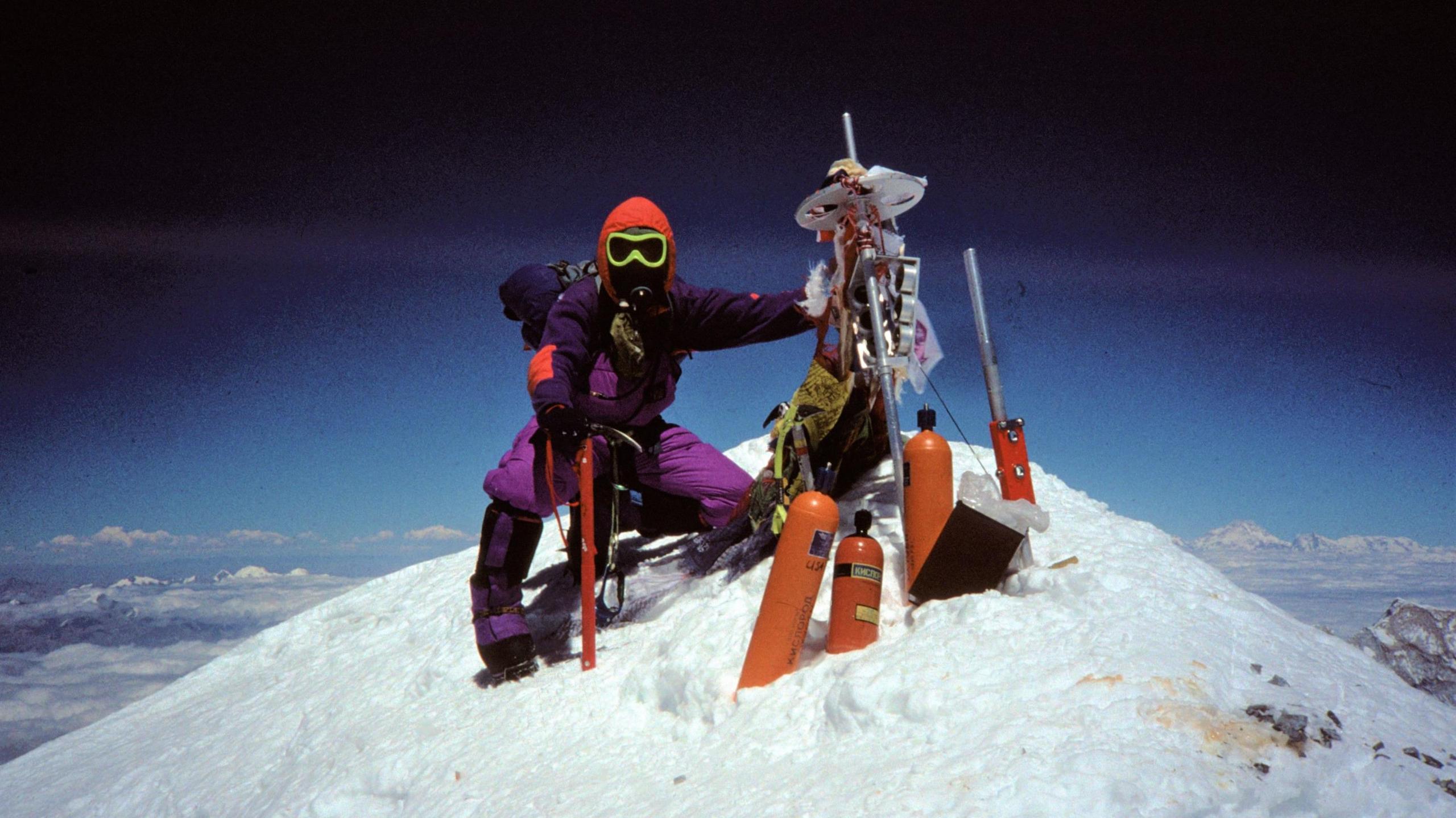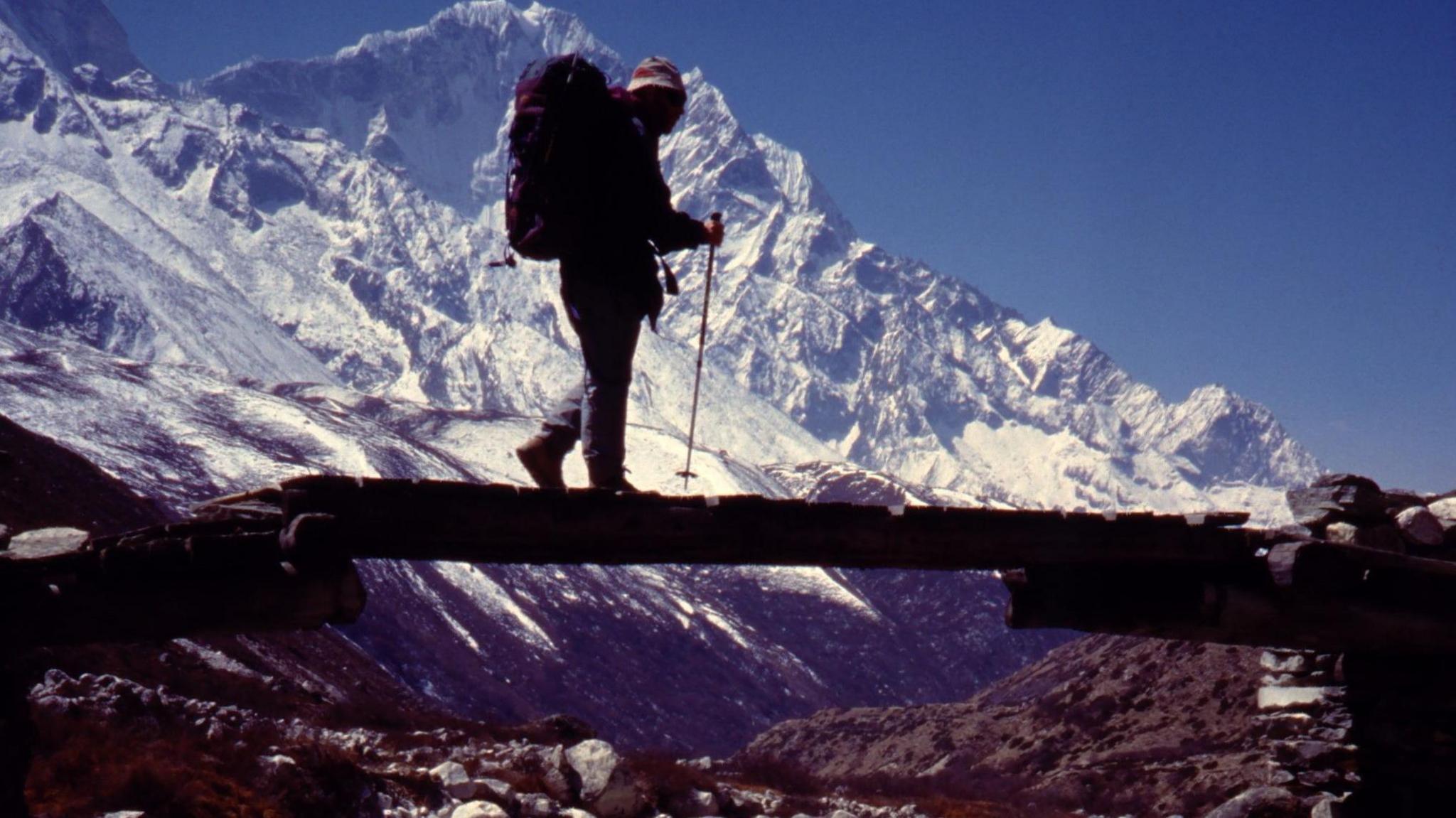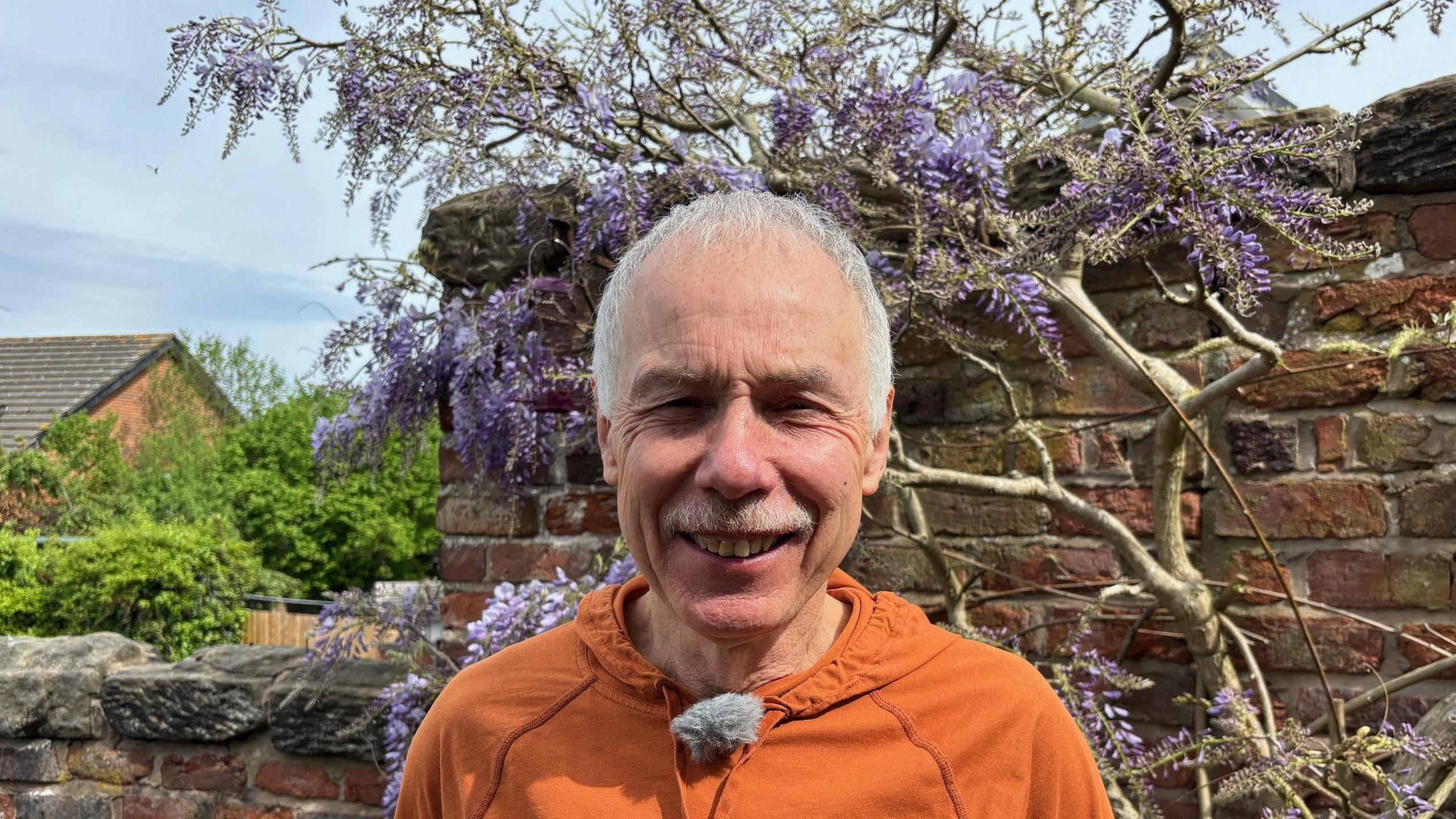First Welshman to climb Everest slams adventure costs

Caradoc Jones became the first Welshman to summit Everest in May 1995
- Published
The adventure and mountaineering industry has turned into "a complete circus which is too expensive", according to the first Welshman to climb Mount Everest.
Caradoc Jones, 66, said large companies demanded too much money for excursions to some of the world's biggest attractions.
Mr Jones, who is originally from Pontrhydfendigaid, Ceredigion, reached the summit of the world's highest mountain on 23 May 1995 and since then he has continued to climb in some of the most remote areas.
"We have to be careful that we don't lose the element of a real adventure," he said.

Mr Jones says the focus should be on planning adventures with friends, rather than buying in to major excursions
Mr Jones, who now lives in Helsby, Cheshire, said his journey with mountaineering began by "climbing mountains in Eryri when I was young".
"Then I learned ice climbing in Scotland, the Alps and there were many campaigns before going to Everest," he said.
While preparing for the challenge in 1995 with his Danish climbing partner, Michael Knakkergaard Jørgensen, Mr Jones started the journey in the Tibet area, north of Everest.
"There's a rocky road that goes all the way to base camp and it's about 20km [12.4 miles] from the East Rongbuk Glacier to the advanced base. Then the real climbing starts there when you're up 6,000ft [1,800m]".
British soldiers make Everest history using new method
- Published21 May
Man climbs to Everest base camp on crutches
- Published19 May 2022
Firefighter ready to climb Everest in work gear
- Published4 January
He said climbing at height was "very difficult" on his body, "although we had adapted in Nepal".
As the pair approached the summit there was still no guarantee of success, with bad weather putting the whole adventure in jeopardy.
"We were caught in a storm in the highest spot of around 8,300m [27,000 ft] for three days, until the wind then dropped and we got the opportunity to go to the summit. But there was no certainty until the last few minutes."
With a clear gap in the extreme weather, they both managed to make it to the summit and Mr Jones said it was a huge relief.
"Finally you think you're going to succeed because you see the old flags on the top and the last 200 yards from the north are not steep so you just feel happiness and relief as you approach," he said.
"I grew up when Everest was a personal battle, and finally we had succeeded."

"It has turned into a complete circus and has almost nothing to do with real mountaineering," says Caradoc Jones
Mr Jones said his trip 30 years ago cost between £2,000 and £3,000, compared to an average cost now of between £40,000 and £60,000.
"People tend to think that you can't do things like this unless you have done a course or passed an exam and bought all this kit," he said.
"It has turned into a complete circus and has almost nothing to do with real mountaineering.
"People are quietly doing much harder things in every corner of the world and that's where the heart of mountaineering and climbing lies I think."
Mr Jones is still climbing, with a trip to the Himalayas planned for the end of the year, and insists that there is adventure to be found in every corner of the world.